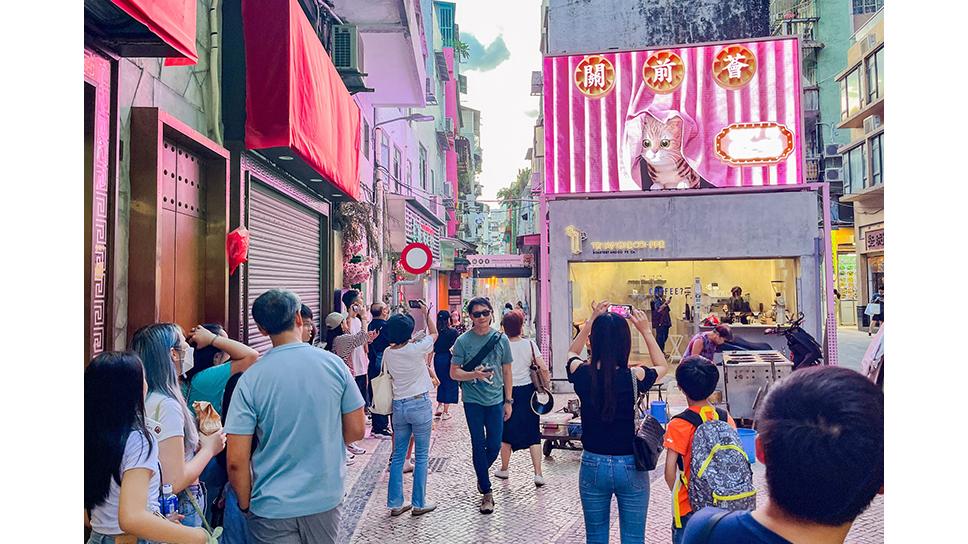
Macao ranked first in terms of destinations for mainland residents travelling outbound in the first half of 2023, according to the “Big Data Report on Outbound Tourism in the First Half of 2023”, recently published by the China Tourism Academy.
Hong Kong, Macao, and Taiwan were the top destinations for Chinese outbound tourists, comprising 79.89 percent of the total number of the visits they made in the first six months this year. Of the 79.89 percent, Macao accounted for nearly 50.90 percent. Hong Kong received 26.66 percent of the visits within that cohort, and Taiwan got 2.33 percent.
According to the recent report, 40.37 million outbound trips by mainland tourists were recorded in the first half of the year.
The China Tourism Academy is a professional research institute directly under the Ministry of Culture and Tourism. It is responsible for policy and study of theory regarding the integrated development of cultural activities and tourism, and tourism statistical work and data analysis.
According to data from Macao’s Statistics and Census Service, the number of mainland tourists that visited Macao in the January to June period inclusive represented a 52.70-percent recovery of the number recorded in the same period in 2019, a better performance than for neighbouringregions.
The Government is pleased to see mainland tourists choosing to come to Macao. The Government is advancing its appropriate economic diversification strategy, making use of the city’s high-quality tourism facilities and services; and continuously optimising its tourism-related assets. These efforts complement Macao’s goal of attracting a greater number of tourists from overseas, and promoting the local tourism industry.
From January to June inclusive, the Government organised a number of tourism-promotion events, with the aim of attracting both mainland tourists and internationally-based tourists.
The promotional campaigns included cooperation with airlines, e-commerce platforms, and online travel agencies, in order to issue discounts on air tickets and hotel accommodation, as well as other discounts to tourists during the calendar year. The campaigns have also included multiple roadshow promotions in various mainland cities, to explain Macao’s diverse tourism products and its festivals. Locally, the Government also supported the expansion of community tourism schemes – such as the “Distinctive Shops Programme” – and promotion of Macao’s “tourism +” initiative. It promoted the creation of synergies between the city’s general community tourism offers and the large-scale conferences and exhibitions held in Macao.
The Government has spared no effort in its work to attract visitors from overseas. In April, a large-scale roadshow held in Portugal – inaugurated by the Chief Executive – promoted overseas the tourism- and leisure-destination image of Macao and the city’s diverse tourism offerings.
The Government has made good use of traditional methods and of new platforms as channels for promotion. Routes have included collaboration with television networks, print-media advertising, and promotional campaigns via social media. The aim in each case has been to promote Macao as a quality tourism destination.
Macao has seen a steady recovery in its tourism industry, thanks to the concerted effort displayed across the community and by the Government. The recent launch of the “Macao Courtesy Campaign” further encourages a spirit of hospitality among the Macao public and within the tourism industry, and promotes Macao’s image as a friendly city with courteous people.
The Government will spare no effort in: advancing diversification of the city’s tourism industry and its sustainable development; optimising promotional effort for the tourism industry to enable Macao’s unique charm to be highlighted; and to develop Macao as a world centre of tourism and leisure.


